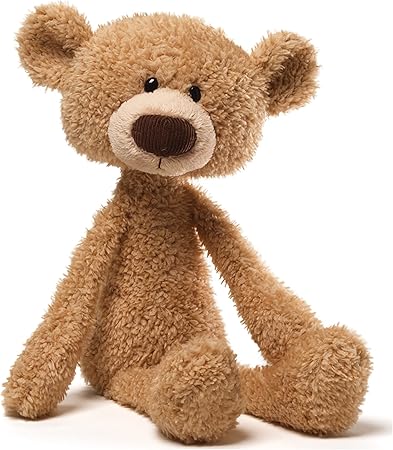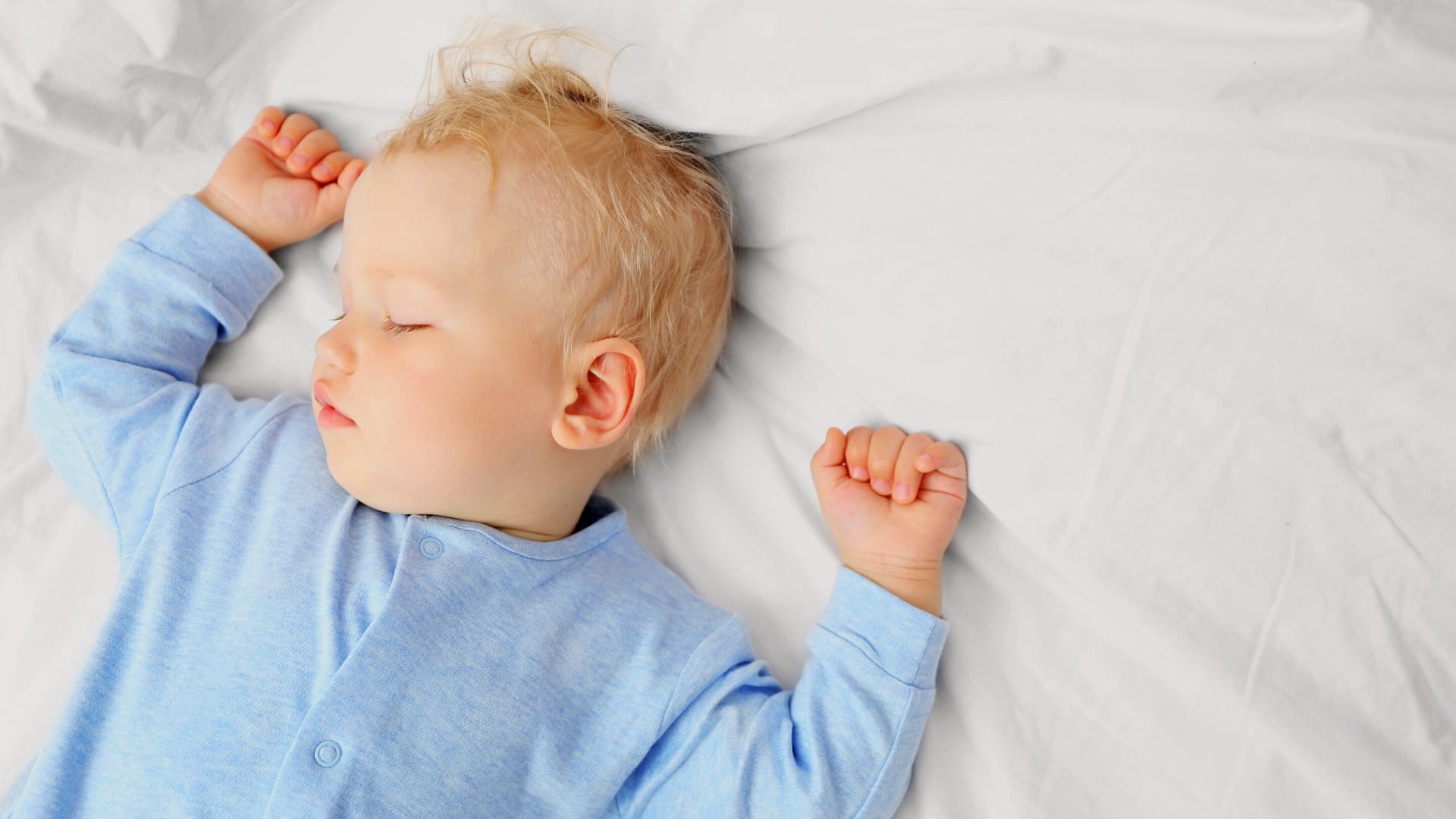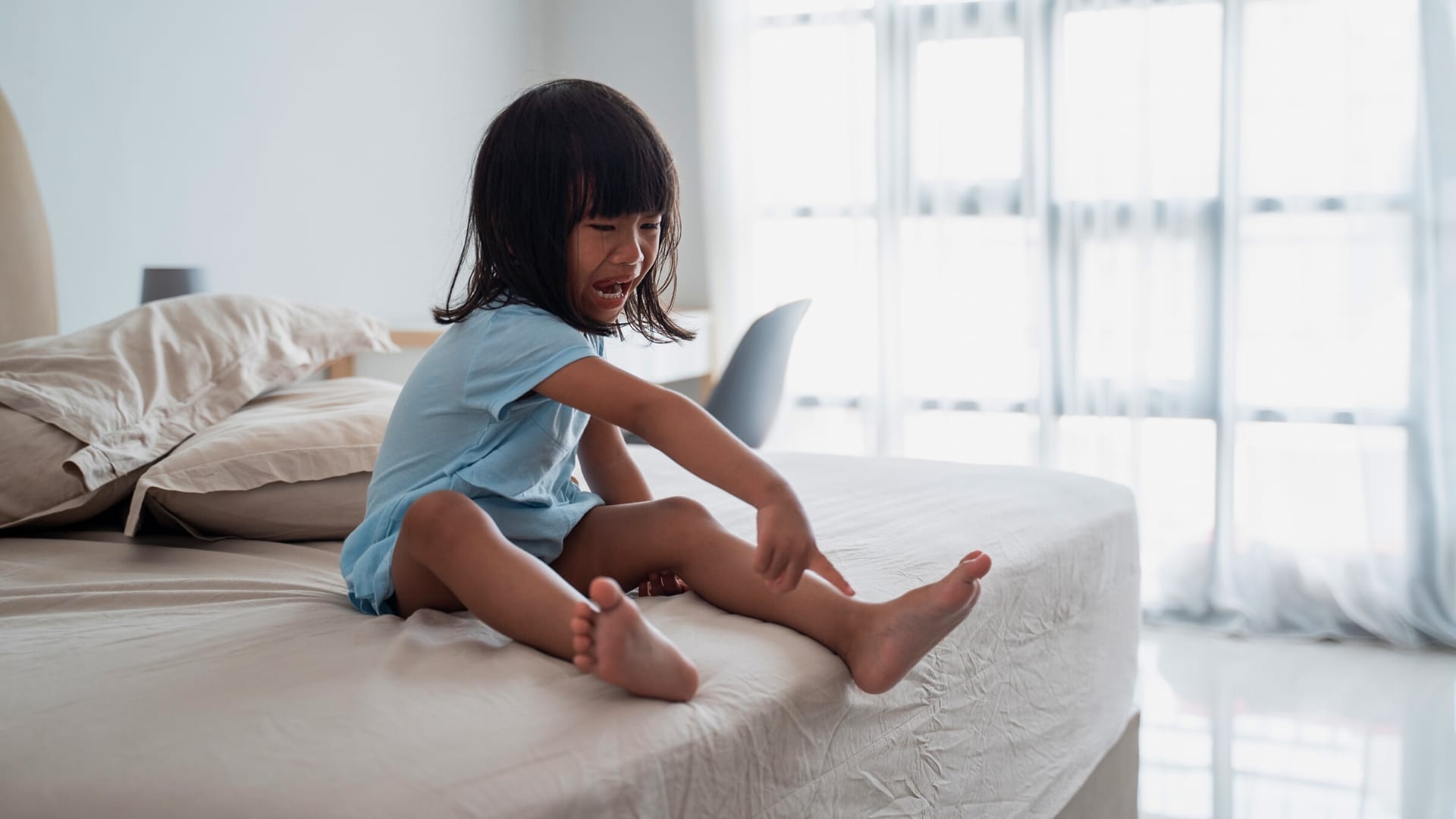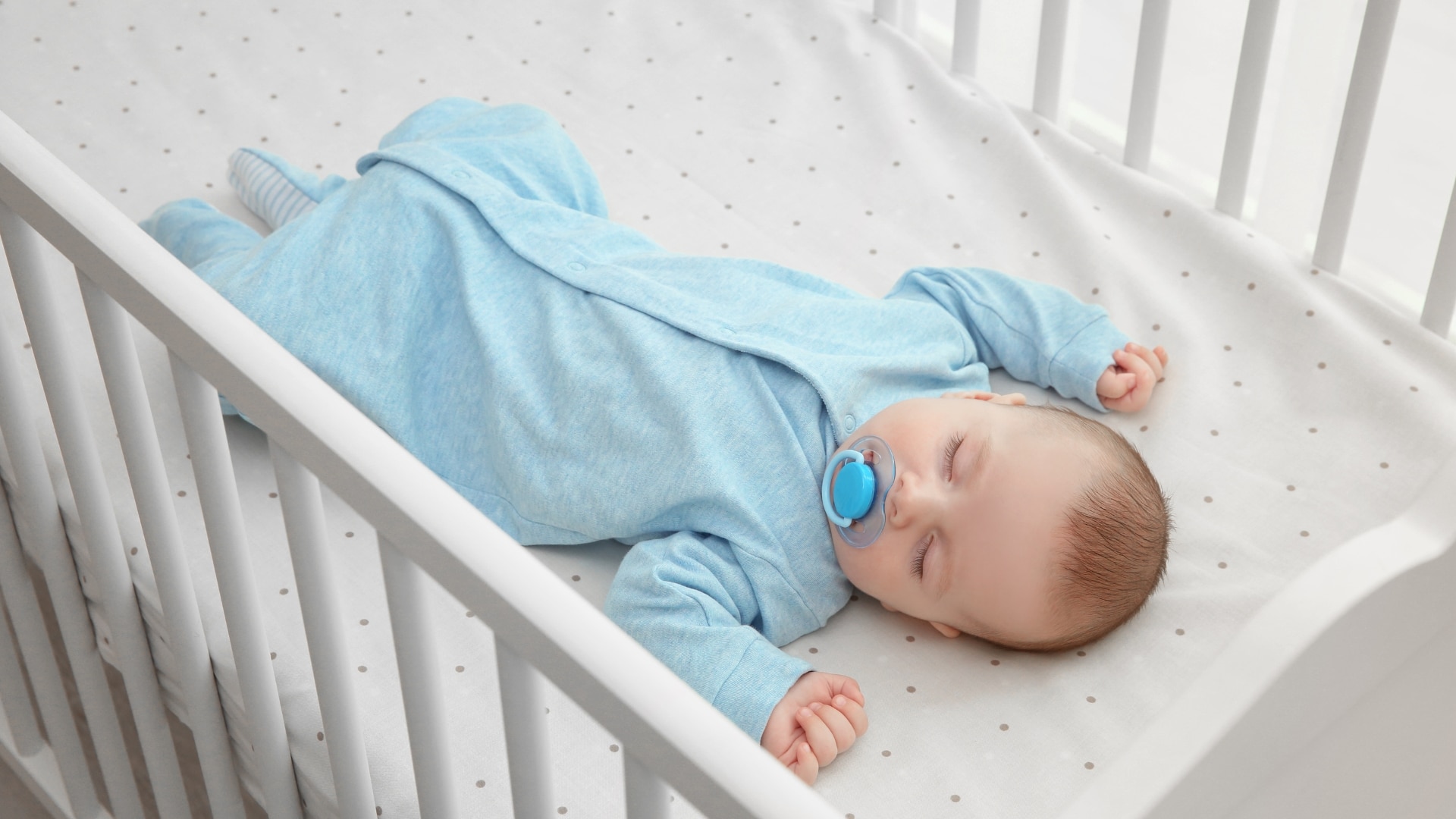With all my years of experience looking after young children, baby separation anxiety at night is something almost every child I have known has experienced.
It’s incredibly common, but that doesn’t make it any less exhausting for you as a parent.
So in today’s article, I will share with you all of my knowledge about handling baby separation anxiety at night, so that you can finally get the rest you ALL deserve.
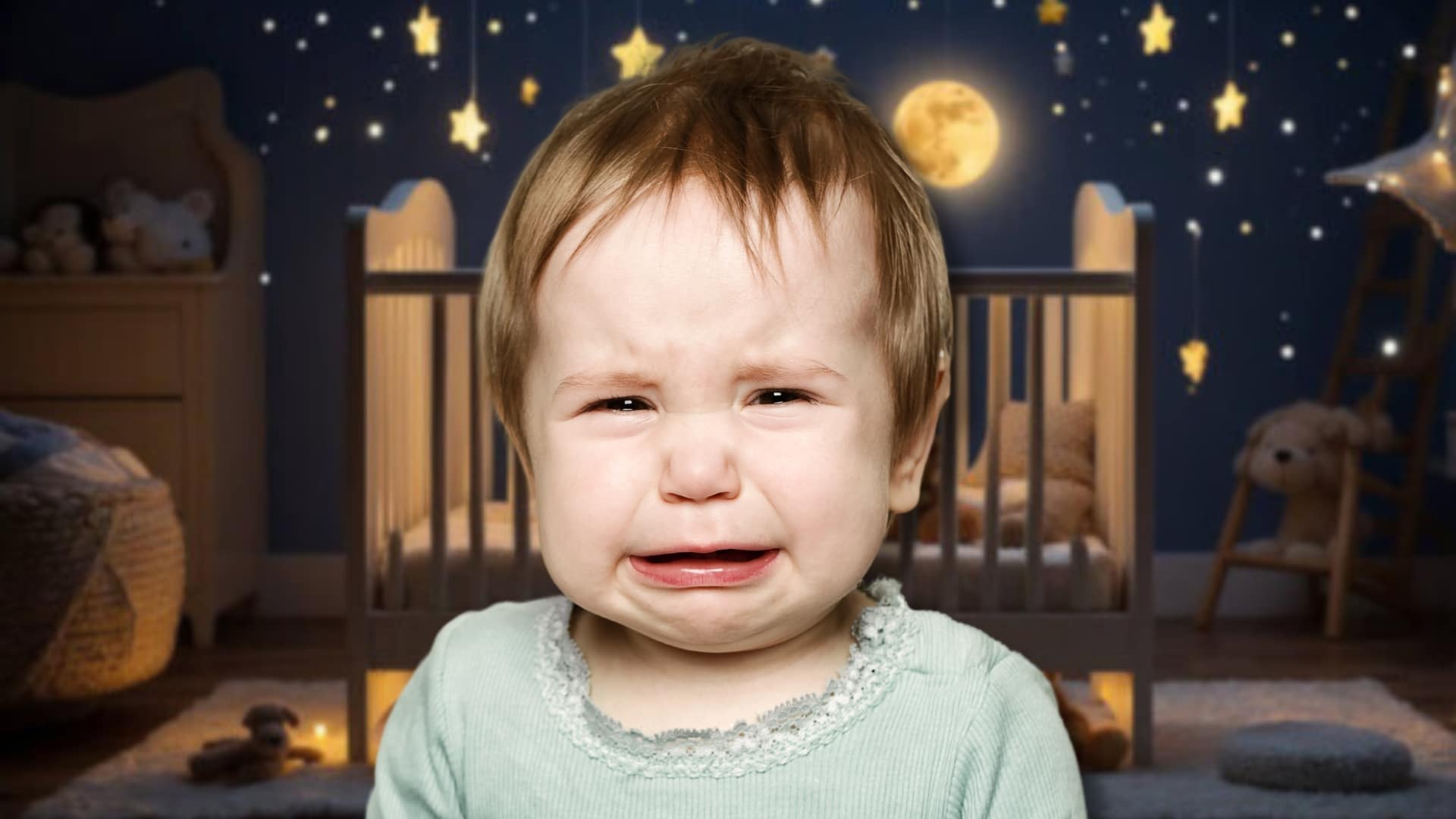
Table of Contents
What Is Separation Anxiety?
Infant separation anxiety is a normal stage of emotional development which commonly starts around 6 to 8 months and can continue from time to time up to two years. This is because, from about 6 months, your baby begins to understand they are separate from you, which can often lead to them becoming anxious when they are away from you.
Why Do Babies Get Separation Anxiety At Night?
Baby separation anxiety can often become more pronounced at night because when you leave, there are fewer distractions for your baby to divert their attention towards. Essentially, they notice you are missing much quicker.
Is Baby Separation Anxiety At Night Bad?
If your baby has separation anxiety at night, it is a sign of the strong attachment and bonding you have with your little one.
This will pave the way for the healthy development of trust and independence as your baby grows.
So while separation anxiety can be tricky to handle, it is ultimately a healthy thing to observe.
Signs Of Separation Anxiety In Babies At Night
As your baby associates sleep with you leaving them, you may find they begin to anticipate your departure during the bedtime routine.
This can cause nightly challenges and signs of separation anxiety appearing earlier and earlier.
Here are the most common signs of baby separation anxiety at night:
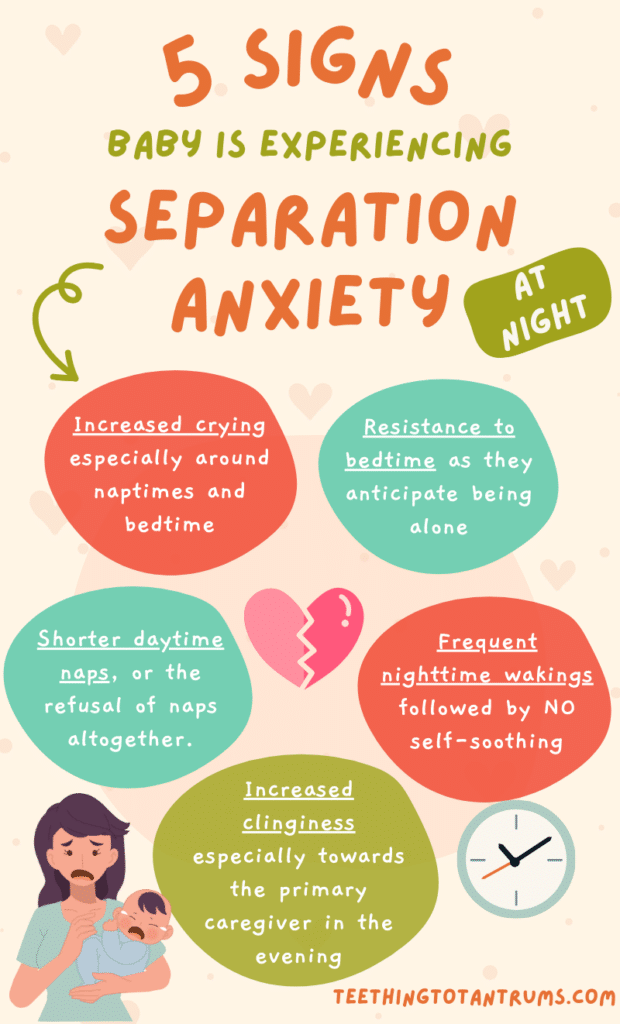
- Increased Crying: Your baby may cry more than usual when it’s time to sleep. Nighttime often brings out an unsettled feeling in babies experiencing separation anxiety. They may sense the distance from you more acutely and respond by crying to signal their need for comfort. It’s a natural response as your baby seeks the reassurance of your presence.
- Resistance to Bedtime: Bedtime might also become a struggle for your baby. When suffering from separation anxiety, the prospect of being apart from you can make your baby resist going to sleep. They might protest against their bedtime routine, showing signs of distress like clinging or becoming upset when it’s time to be put down for the night.
- Frequent Awakenings: Your baby might also wake up crying several times at night as sleep can be disrupted by your baby’s anxiety. They may wake up frequently, looking for you and crying for attention. They will struggle to self-soothe too. These awakenings are a sign that your baby is having difficulty settling due to the fear of being alone.
- Clinginess: A clear indicator of separation anxiety is when your baby becomes increasingly attached to you, especially in the evenings. This clinginess serves as a defense mechanism, as your baby attempts to avoid the anticipated separation.
- Shorter daytime naps: You may find that your little one starts to nap for shorter periods or resists nap time together. This can be doubly difficult to handle as you have an anxious baby combined with an overtired baby. If your baby is resisting naps, read the following posts: Why Do Babies Fight Sleep and How To Handle An Overtired Baby.
Looking to get your little one to sleep quickly and effortlessly? Check out my Bedtime and Nap Cheat Sheet and master the art of making daytime naps and bedtimes as seamless as possible.
A bedtime & nap cheat sheet so good your little one will ask you to put them to bed...
Laura Williams "This is a life saver! I'm so glad I downloaded your bedtime & nap cheat sheet. My little one actually asked me to put him to bed last night! Unbelievable! Thank you so much!"
Click Here For The FREE Cheat Sheet
When Do Babies Get Separation Anxiety at Night?
Separation anxiety at night can begin as your baby develops emotionally and becomes aware of being a separate person from you. This often starts around 6 months of age.
When Does Infant Separation Anxiety Peak?
Despite possibly starting around 6 months of age, separation anxiety often peaks when babies are between 10 and 18 months old. By this time, babies have become more aware of separations from their parents.
As a result, you will notice increased clinginess, which is especially pronounced at bedtime with them crying and protesting loudly when you leave the room.
How To Help Baby Sleep With Separation Anxiety
Despite the intense symptoms and exhaustion that come with separation anxiety, there are things you can do to help your little one through this anxious phase apart from providing lots of loving support.
Watch this video to learn How To Stop Baby Separation Anxiety At Night:
And read on to learn 9 ways to help your baby overcome their separation anxiety quickly and without tears.
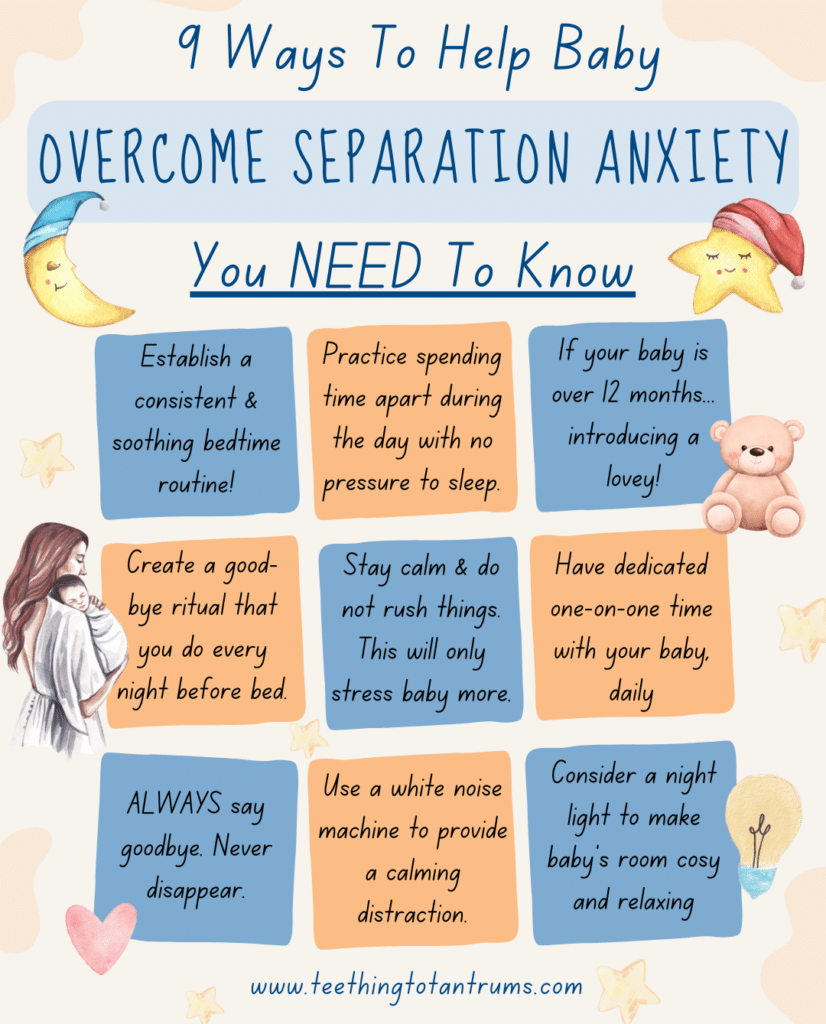
- First and foremost establish a soothing bedtime routine. Consistency is key to making your baby feel secure and creating a nightly ritual that includes calming activities like a warm bath, maybe a massage, reading, or soft singing will all signal to your baby that it’s time to sleep, and the familiarity offers comfort during times of anxiety.
- Practice brief separation during the day. In my experience, spending some time apart when sleep is not required can be really helpful. Gently accustom your baby to the idea of being apart by leaving them to play safely in their crib for short periods and constantly checking in. This can help develop object permanence, which is the understanding that you exist even when not in your baby’s sight. This understanding can help to minimize stress at night.
- If your baby is older than 12 months, consider introducing a comfort object. Offering a soft toy or blanket can provide a sense of security for your little one. Ensure the chosen object is safe for sleep and encourage its association with you and comfort by holding it while reading the bedtime story and during cuddling times.
- Create a consistent goodbye ritual. Whether it’s a kiss, a special phrase, or a wave, a goodbye ritual can become a trusted signal that you will depart soon, but that you will ALWAYS return. Perform this ritual consistently before leaving your baby at bedtime. This will help reinforce the bedtime routine and set clear expectations for your little one.
- Stay calm and don’t rush things. Babies do not like to be rushed. They will sense the stress which will often make them more anxious. So you must keep the lead-up to bedtime calm and relaxed.
- Spend daily concentrated one-on-one time. Ensure you spend adequate concentrated one-on-one time with your little one. If your baby feels they have had a lot of your love and time, you may find they go to sleep easier knowing they have spent time with you.
- Always say goodbye… If your baby is experiencing separation anxiety, never leave them with friends or relatives or at daycare without saying goodbye. This is because it is always important that your little one knows you are leaving and that you are going to return. Even if they get upset they should always see you leave. You will only make their separation anxiety worse if you suddenly disappear.
- Use a white noise machine or sleep app to provide comfort for your little one when you leave. My son loved listening to a white noise machine as a baby and as he got older, he listened to audio storybooks to help him fall asleep.
- Use a night light to help your little one settle, as separation anxiety and fear of the dark can often go hand in hand. Here is my favorite night light on the market at the moment.
Finding the right night light for your child can be quite a task. You want something safe, comforting, and practical. The Cozy Starry Night Light ticks these boxes, with eye-friendly warm lighting and an easy-to-use dimmer.
Its gentle glow makes it the best night light for feeding baby, diaper changes, or comforting your little one back to sleep.
As your baby grows the Cozy Starry Night Light's starry sky projection can provide comfort and gentle quiet time stimulation. Its soft lighting ensures a dreamy, peaceful environment, supporting your baby’s natural sleep cycle.
It really is a fantastic nightlight (at a very reasonable price!)
- Eye-friendly warm lighting with adjustable brightness.
- Includes a timer function for convenience.
- Projects a starry sky that is soothing for little ones.
- Rechargeable battery, so it's very portable.
- A USB adapter is not included for charging.
- The star projector is static without motion (however, this is ideal for very young babies and toddlers).
- Battery life varies based on the brightness settings.
Can A Lovey Help With Separation Anxiety?
A lovey can help with separation anxiety by providing comfort and reinforcing object permanence for your baby during the night. However, introducing one at the right age is crucial.
When Can Baby Sleep With A Lovey?
Your baby’s safety is paramount and you need to be very careful when considering introducing any item into their crib.
The American Academy of Pediatrics advises that you should keep soft objects out of the crib at least for the first year. This ensures safe sleep practices and reduces the risk of SIDS (Sudden Infant Death Syndrome).
Therefore, starting at around 12 months, your baby can sleep with a soft lovey.
But you must bear in mind that the lovey must be safe to be left with your little one while they are sleeping too.
There should be no small parts or pieces that can detach…
And the lovey should be small enough that it doesn’t cover your baby’s face.
As your little one grows up, their lovey often becomes a constant companion providing a sense of security, especially during periods of development where separation anxiety can peak.
My son’s lovely was an old muslin cloth!
Super soft, very cuddly and the perfect companion to young children, the GUND Teddy Bears never fail to be toy box favourites for years to come!
Frequently Asked Questions About Baby Separation Anxiety At Night
Navigating through your baby’s separation anxiety at night can be incredibly challenging. And after 40 years in the childcare industry, several questions continue to crop up about it.
In this section, I will answer them to help you understand and manage separation anxiety with ease.
Q: Why is separation anxiety worse at night?
A: Your baby may feel separation anxiety more acutely at night due to the darkness and quietness, which can be unsettling. The lack of distractions also makes your absence more pronounced. Consistent bedtime routines and the use of white noise machines or a sleep app can help.
Q: Why does my baby cry every time I put her down?
A: Crying when put down is often a sign that your baby is experiencing separation anxiety. They associate your presence with comfort and safety. Gradual steps to help your baby get used to short periods alone can build their security and independence.
Q: Can separation anxiety still affect my 1-year-old at night, and how can I address it?
A: Yes, separation anxiety can certainly affect 1-year-olds as they have a heightened sense of your presence and absence. To address it, maintain predictable goodnight rituals and offer a comfort item like a favorite blanket or lovey. Gentle reassurance that you’ll return can also help.
Q: How can I help my 6-month-old cope with separation anxiety during the night?
A: At 6 months, your baby is developing a stronger attachment to you. To help them cope, establish a soothing bedtime routine and stay calm during separations. Consistently respond to your baby’s needs so they learn to trust that you will always come back.
Q: What are the effective ways to manage an 18-month-old’s separation anxiety during nighttime?
A: To manage an 18-month-old’s separation anxiety, develop a consistent bedtime routine, and keep goodbyes brief but affectionate. You can practice daytime separations to ease nighttime anxiety. Ensure you respond to night wakings with comfort but consistency to build security.
Need More Parenting Help?
- Download our FREE Bedtime & Nap Sleep Cheat Sheet. It’s a free, easy-to-use and proven formula designed for parents of 0-5 year olds to master the art of consistently undisturbed and restful sleep without the yelling, nagging or exhausting long-winded evenings.
- Check out our Parenting Toolbox. You’ll get access to expertly-chosen products that you can guarantee are the best for your little one and your wallet.
- Are you looking for personalized guidance to navigate the challenges of parenting? I offer 1-on-1 consultations to bring you tailored strategies and actionable advice to help support your child's growth and well-being with confidence.

A bedtime & nap cheat sheet so good your little one will ask you to put them to bed...
Laura Williams "This is a life saver! I'm so glad I downloaded your bedtime & nap cheat sheet. My little one actually asked me to put him to bed last night! Unbelievable! Thank you so much!"
Click Here For The FREE Cheat Sheet

